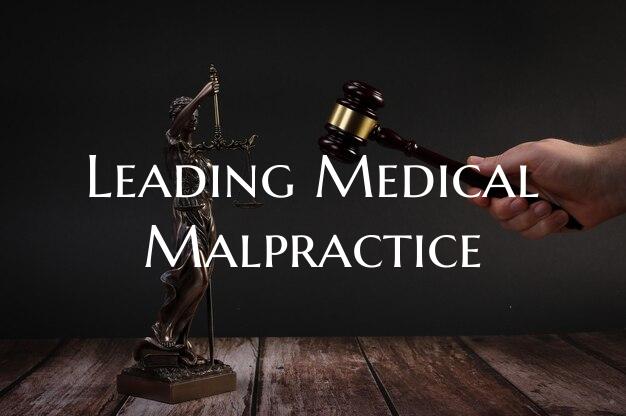
Leading Medical Malpractice
Medical malpractice is a serious issue that can have devastating consequences for patients and their families. When healthcare providers fail to meet the standard of care expected in their field, patients may suffer injuries, complications, or even death as a result. Understanding the causes of medical malpractice and knowing how to seek recourse is essential for protecting your rights and holding responsible parties accountable.
Causes of Medical Malpractice:
1. Misdiagnosis or Delayed Diagnosis: When a healthcare provider fails to accurately diagnose a medical condition in a timely manner, it can lead to ineffective treatment or the progression of the disease.
2. Surgical Errors: Errors during surgery, such as wrong-site surgery, improper incisions, or leaving foreign objects in the body, can result in serious harm to patients.
3. Medication Errors: Mistakes in prescribing, administering, or monitoring medication can lead to adverse drug reactions, overdoses, or other harmful effects.
4. Lack of Informed Consent: Healthcare providers have a duty to fully inform patients of the risks and benefits of treatment options. Failure to obtain informed consent can constitute medical malpractice.
5. Negligent Care: Substandard care, inadequate supervision, or lack of follow-up can all contribute to medical malpractice cases.
Seeking Recourse for Medical Malpractice:
1. Documenting the Incident: Keep detailed records of the medical care received, including appointments, treatments, medications, and any adverse reactions or complications experienced.
2. Seeking Legal Advice: Consult with a medical malpractice attorney who can review your case, assess the evidence, and help you understand your legal options.
3. Filing a Complaint: In some cases, it may be necessary to file a formal complaint with the relevant medical licensing board or regulatory agency to address the malpractice.
4. Pursuing Compensation: If you have been harmed as a result of medical malpractice, you may be entitled to compensation for medical expenses, lost wages, pain and suffering, and other damages.
5. Advocating for Change: By speaking out about your experience and advocating for improved healthcare practices, you can help prevent future incidents of medical malpractice and protect other patients from harm.
In conclusion, understanding the causes of medical malpractice and knowing how to seek recourse is crucial for protecting your rights as a patient. By taking action against negligent healthcare providers, you can hold them accountable for their actions and help prevent further harm to others. Remember that you are not alone in your pursuit of justice, and there are resources available to support you through the process.
